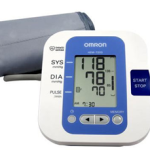Hypertension is a medical condition in which blood pressure (BP) is inappropriately high for age and sex.When BP exceeds 140/90mmHg on several occasions with or without underlying organ damage in an adult we say that there is hypertension.
What is hypertension?
Hypertension is a medical condition in which blood pressure (BP) is inappropriately high for age and sex. When BP exceeds 140/90mmHg on several occasions with or without underlying organ damage in an adult we say that there is hypertension.
Does hypertension affect children?
Hypertension can affect all ages though it is more common in adults. Normally blood pressure increases as a child gets older; hypertension in children is defined differently and we need to compare the blood pressure recorded with a blood pressure chart wherein the expected readings for different height and age are entered. Hypertension in children is most likely secondary (see below).
What causes hypertension?
In the majority of patients with hypertension, the cause is unknown – we call this category of hypertension as essential or primary hypertension. Essential hypertension is related to genetic factors (it tends to occur in other members of families), obesity, alcohol intake, and salt intake. In the remaining (approximately 10%) patients, hypertension is the result of a specific and potentially treatable cause. This type of hypertension is called secondary hypertension. The commonest causes of secondary hypertension are kidney diseases and diseases involving adrenal glands.
How do we diagnose hypertension?
Hypertension is without symptoms most of the times and can present directly with complications related to hypertension (see below). That is why it is termed a silent killer. The only way to diagnose hypertension is to check BP using sphygmomanometer. The measurement should be done after 5minutes of rest. If BP is high, the measurement should be repeated several times especially if there is no target organ damage (see below) before considering treatment with drugs.
What are the symptoms of hypertension?
Hypertension is without symptoms most of the times and is detected incidentally during master health check up or evaluation for an independent intercurrent illness. There is a common tendency among the public to neglect the condition when it is detected so; patients fail to have regular follow up and further evaluation resulting in serious target organ damage. More commonly the symptoms associated with hypertension are those of a) the causes of hypertension (if it is secondary hypertension) and b) the target organ damage.
How does hypertension cause organ damage?
Hypertension causes changes in the blood vessels all over the body and contributes significantly to accumulation of fat within blood vessel walls.
What are the target organs for hypertension?
Organs that are affected by hypertension are the target organs – these include heart, brain, eye and the kidneys. Hypertension causes a) myocardial infarction (death of heart tissue as a result of reduced blood supply to a portion of heart muscle - heart attack), b) cardiac failure (inefficient cardiac pumping), c) brain infarction (death of brain tissue as a result of reduced blood supply to a portion of brain), d) brain haemorrhage (bleeding within brain), e) eye damage (secondary to infarction in retina – there will be associated defective vision) and f) gradual irreversible loss of kidney function ultimately resulting in end-stage kidney disease requiring renal replacement therapy (dialysis and transplantation).
What tests are needed if hypertension is diagnosed?
If the diagnosis of hypertension is confirmed, all patients should undergo the following tests at diagnosis to rule out any treatable cause: 1. urine tests for protein leak and microscopy, 2. blood tests for kidney function (serum creatinine), serum electrolytes, serum cholesterol and blood glucose, 3. ECG and 4. Ultrasound abdomen. Further tests will be required if these tests reveal any abnormality.
How do we treat hypertension?
If there is a treatable cause, the cause is managed appropriately. Medicines of different classes are available to bring blood pressure under control. These medicines should be taken as prescribed without fail.
Is regular follow up necessary if BP is under control?
Regular follow up is necessary even if hypertension is under good control. During follow up visits, patients will be monitored for side effects of drugs and target organ damage apart from BP control.
SOME POINTS TO FOLLOW:
- Begin exercises very gradually, under the guidance of your doctor
- Avoid smoking & alcohol consumption
- Reduce salt intake
- Avoid processed foods like, papads, pickles, wafers, chutneys, slated nuts. Salted biscuits, canned foods, processed cheese, soya sauce, processed meat etc
- Avoid fried foods, fatty foods like coconuts, copra, butter, ghee, bonda, bajji etc
- Avoid Non-vegetarian food, or use lean meat
- Organ meat like brain, Kidney, Liver should be totally avoided. Egg yolk should be avoided
- If you are obese, avoid food containing high cholesterol and fats
Diet and Hypertension
- Low calorie foods
- Low fat foods
- Lots of Vegetables & fruits
- Use of low fat milk and its products
- Lots of vegetable salad
Are ideal ways of following a controlled diet, for maintaining a normal blood pressure.

